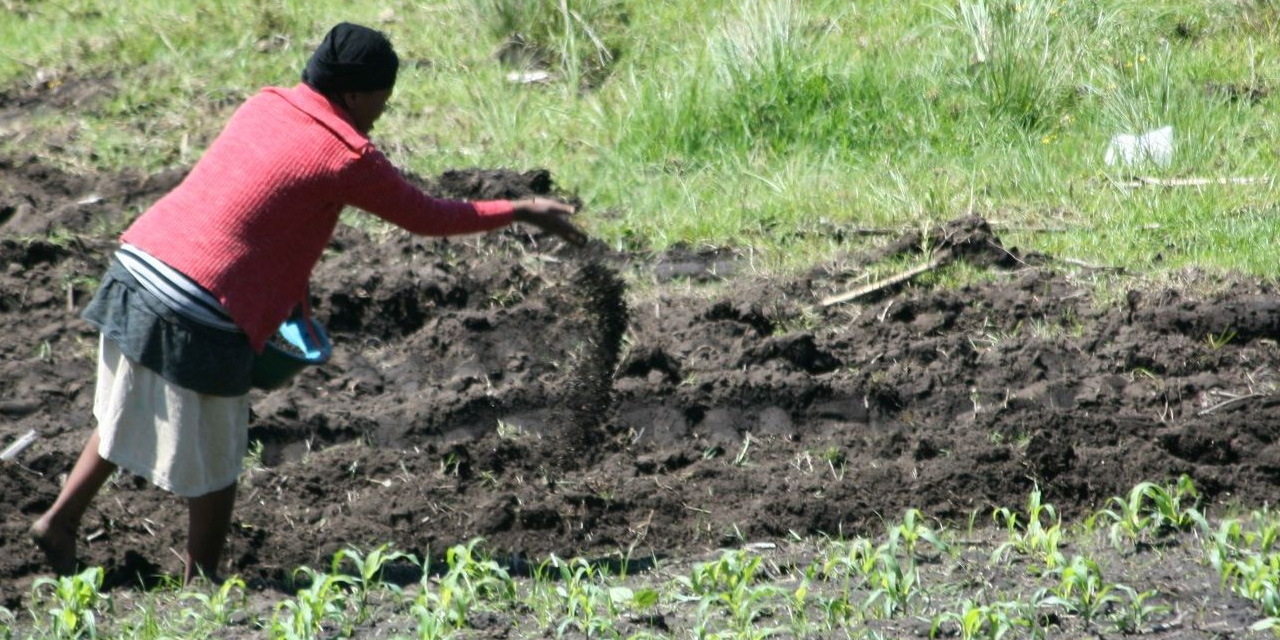Hanks Saisai
The successful production of any given crop or vegetable is dependent on certain factors. In most cases, crops have unique climatic and soil requirements that influence their growth and development. A key factor that influences crop growth and development is soil fertility, which is defined as the soil’s ability to make plant nutrients available to crops.
Crops require about sixteen (16) essential elements (Carbon, Oxygen, Hydrogen, Nitrogen, Phosphorus, Potassium, Calcium, Magnesium, Sulphur, Iron, Zinc, Copper, Manganese, Boron, Molybdenum & Chlorine). They all perform specific functions that promote growth and development of specific parts of a given crop or vegetable. Normally, three (3) of these sixteen (16) elements (Carbon, Oxygen & Hydrogen) are freely available to crops in either the air or water. Nutrients that are required by crops are grouped into two categories, which are macronutrients and micronutrients.
Macronutrients are defined as the nutrients that are required by plants in large quantities. The three (3) main nutrients needed by crop in large quantities are Nitrogen (N), Phosphorus (P) and Potassium (K), collectively known as NPK.
Nitrogen (N) is needed for vigorous vegetative growth and is essential in the formation of chlorophyll that gives plants their deep green colour. Deficiency of Nitrogen is associated with slow growth of the vegetative (leafy) parts of crops and is noticeable by yellowish leaves. Excessive Nitrogen supply to crops can prolong the growing season and therefore delay crop maturity.
Phosphorus (P) is an element that promotes root development, seed formation, early maturation of crops and disease resistance in some crops. Deficiency of Phosphorus can be seen by a purplish colouration of the leaves and stunted root growth.
Potassium (K) is needed for the formation of sugar and starch that are necessary for fruit formation and also affects crop vigour. Deficiency of Potassium can be noticed by an orangey-brown colour on the tips and edges of leaves.
Micronutrients are defined as the elements that are required by crops in small quantities and they each play a certain role in vegetable growth and development. Calcium (Ca) is an element that crops need for general plant strength and it increases the resistance of roots towards toxic conditions in acidic soils. Magnesium (Mg) is crucial for the process of Photosynthesis to occur. Sulphur (S) is a part of amino acids that help to build proteins.
Iron (Fe) is needed in chlorophyll formation and plays a role in the oxidation-reduction processes. Copper (Cu) plays a regulating part in certain process such as the uptake of Iron. Zinc (Zn) is an element that activates enzymes in plant cells, and helps to regulate the pH of cell solutions. Manganese (Mn) plays a role in Photosynthesis and assists in the uptake of Nitrates (the form in which Nitrogen is available to plants) and enzyme activities. Boron (B) is essential for pollination, it assists in the process of flower and fruit formation, and it helps in the uptake of other elements. Molybdenum (Mo) plays an important role in Photosynthesis and helps in the formation of proteins. Chlorine (Cl) is essential for controlling osmotic pressure in crops (plants in general). Normally a deficiency gives a wilting appearance and bronzing of leaves.
Nutrients that are required by crops are normally supplied by either adding organic fertilizers such as manure and compost or by adding inorganic (chemical) fertilizers such as NPK (2:3:2), Limestone Ammonium Nitrate (LAN), Urea and Potassium phosphate.
It is always recommended that before applying any fertilizer, a soil analysis test must be carried out. Fertilizers can then be applied based on the soil test results indicating which nutrients are present in the soil and which nutrients are absent. The soil analysis result will also help farmers determine how much fertilizer is to be applied per unit area (per Hectare).
Excessive or deficiency of nutrients in the soil where crops are grown can have effects on the growth and development of crops and therefore lower expected crop yields.
* Hanks Saisai is a Technical Advisor: Crops & Poultry within Agribank’s Agri Advisory Services Division.




